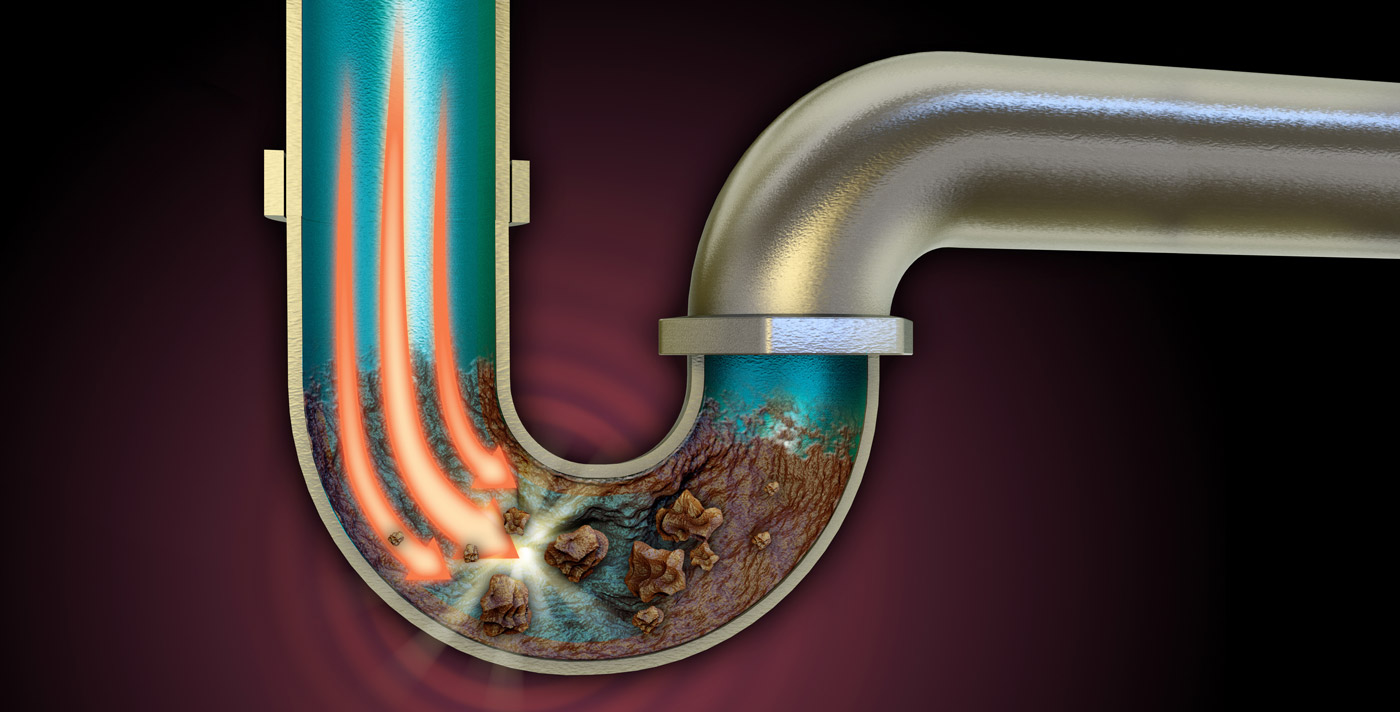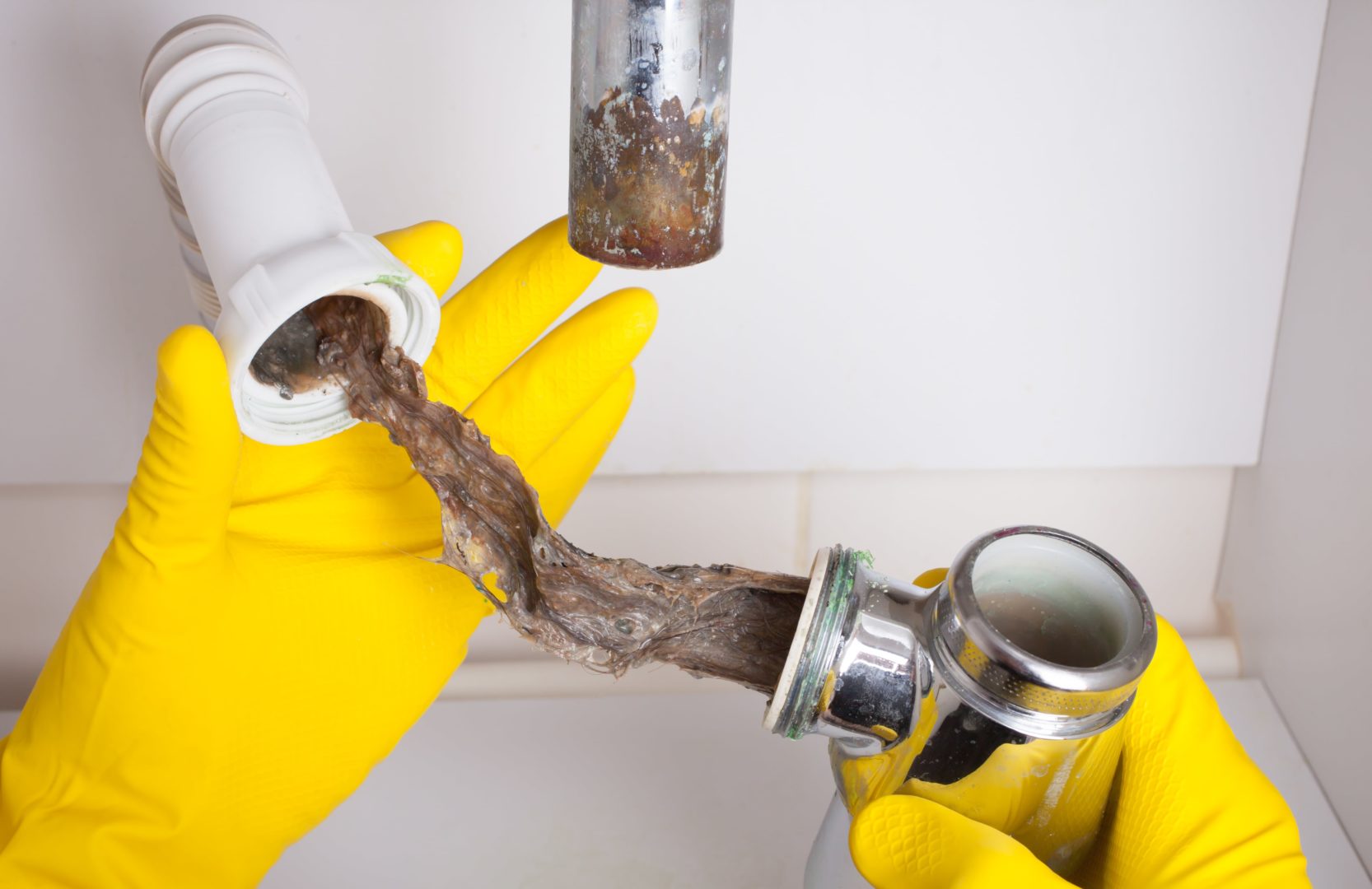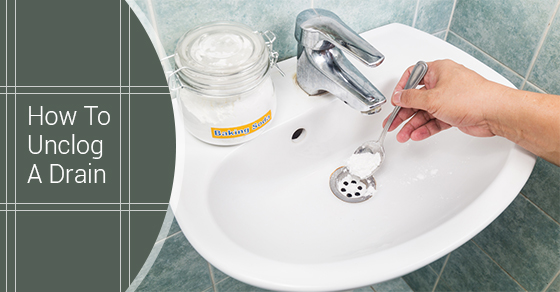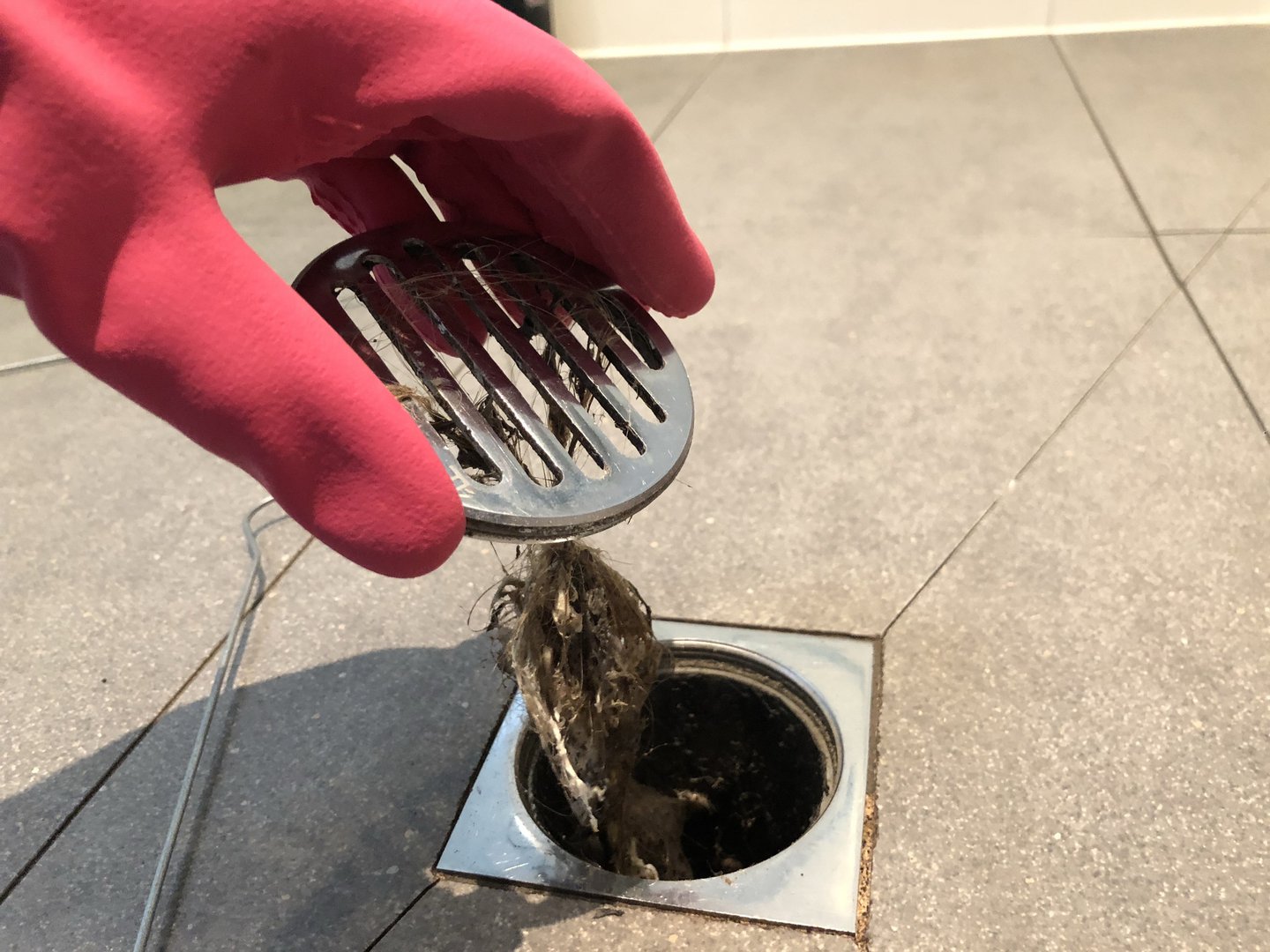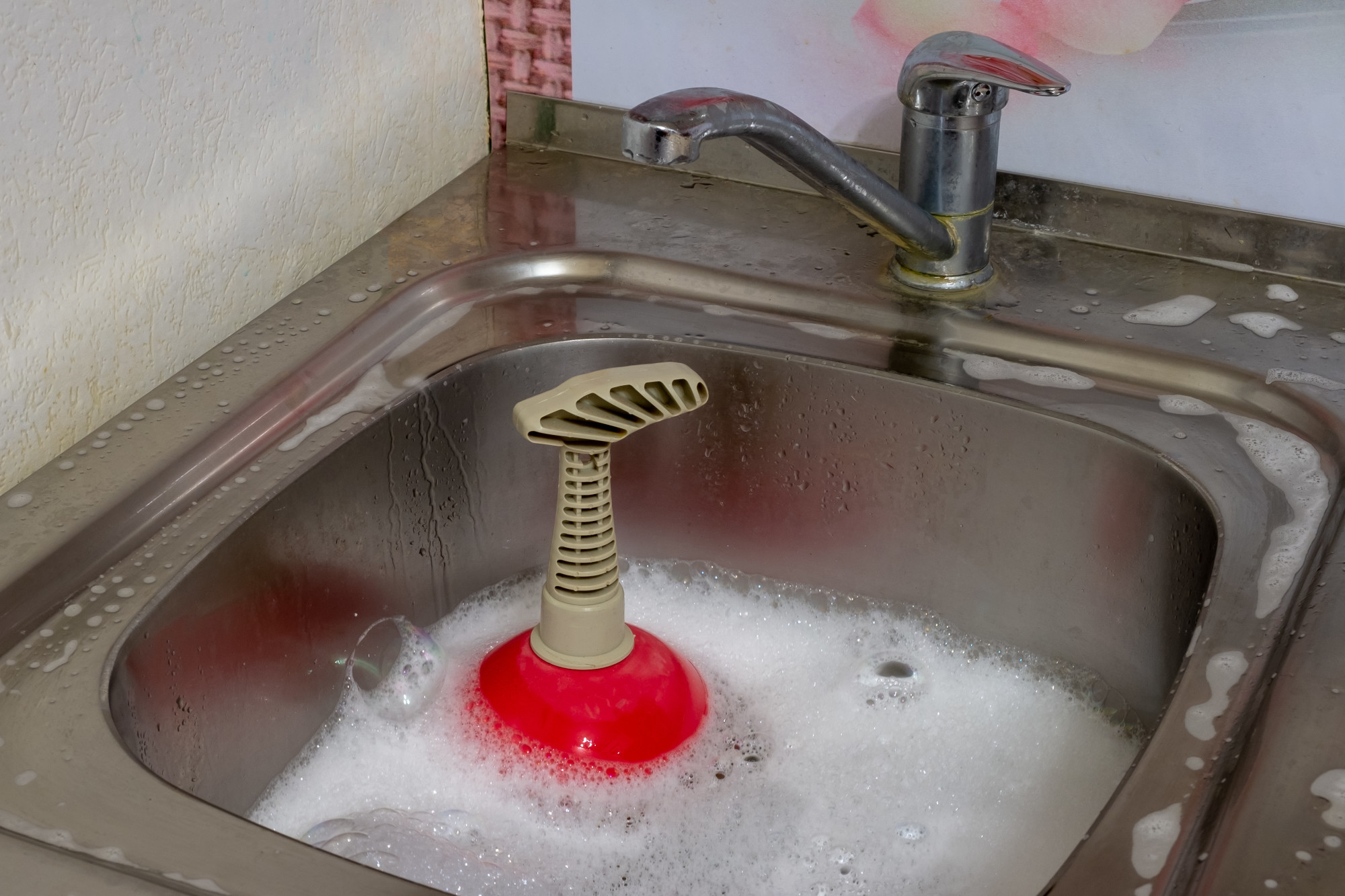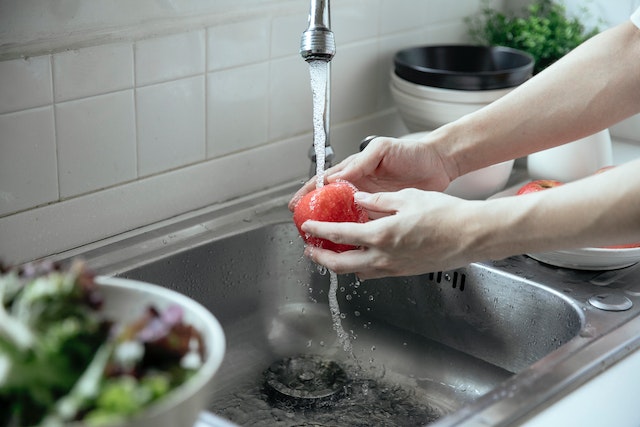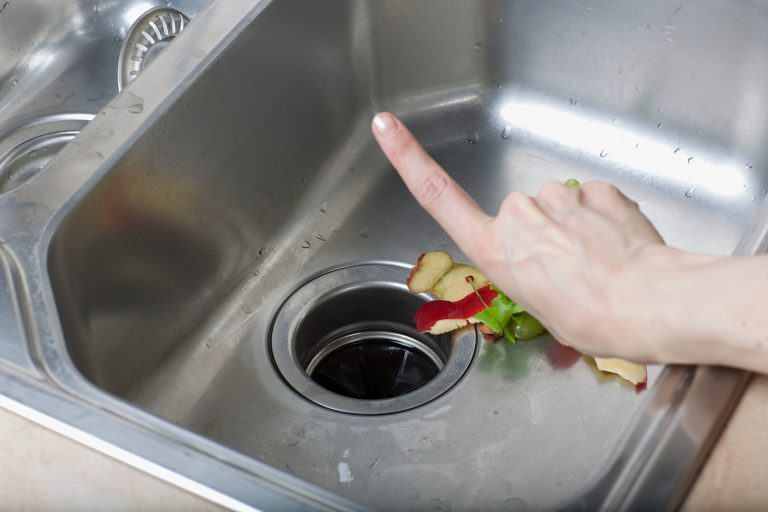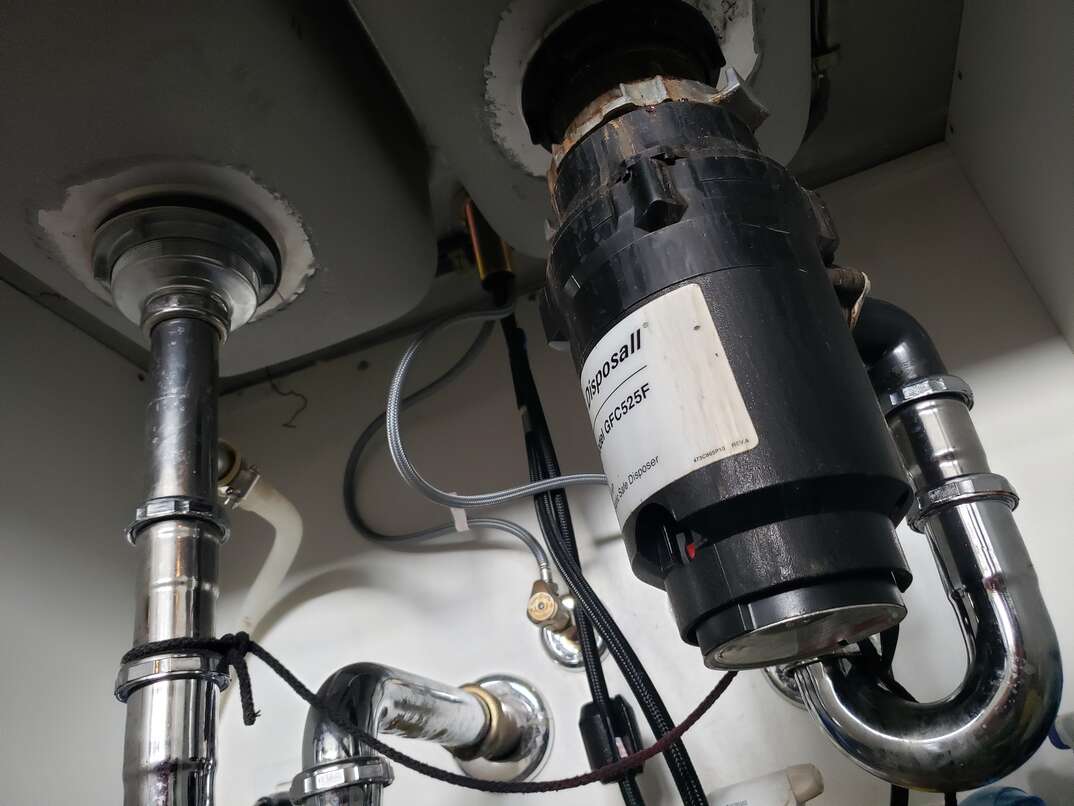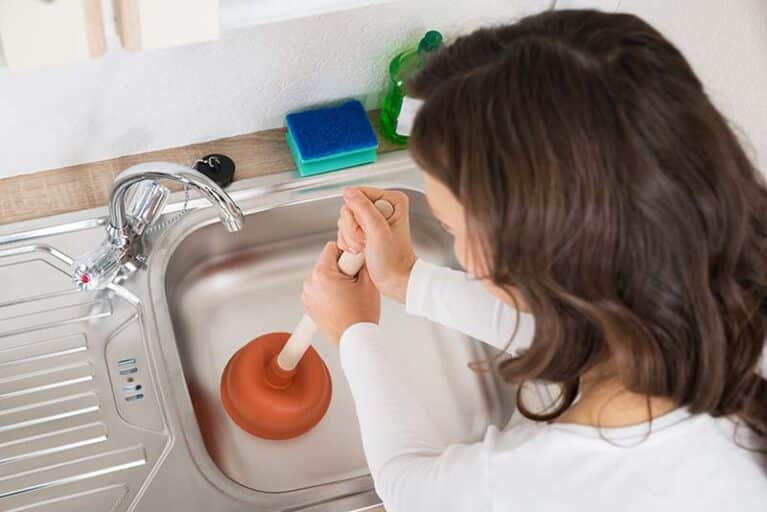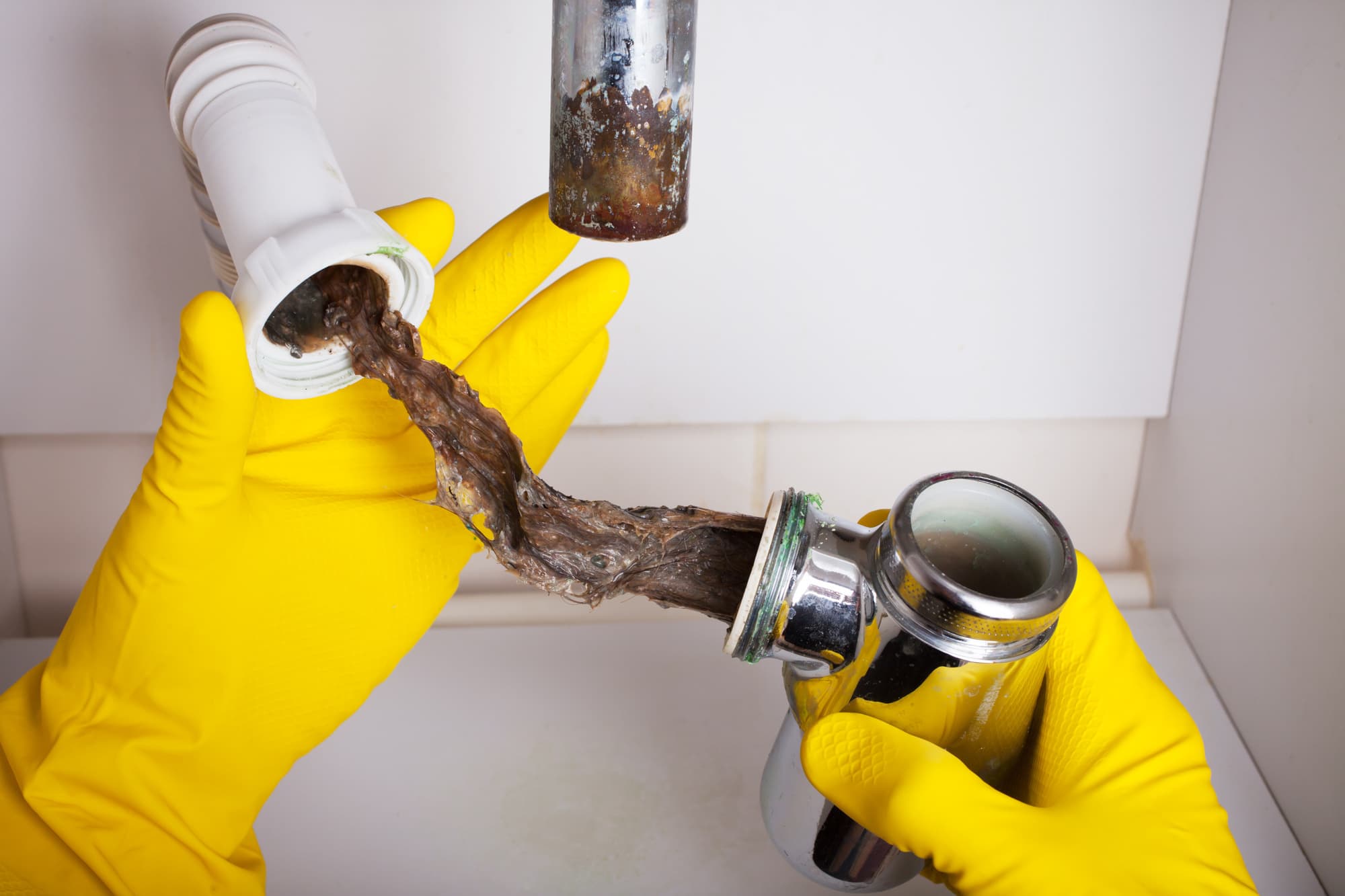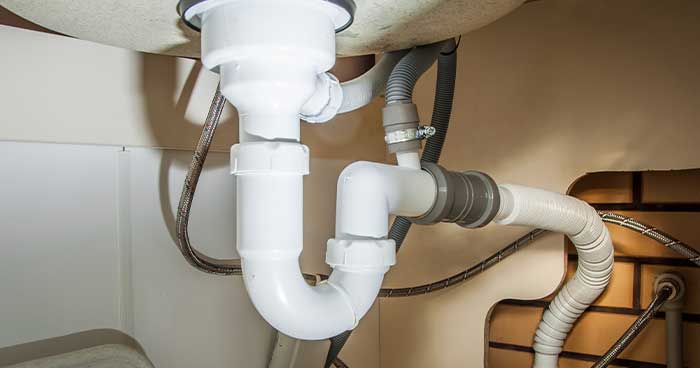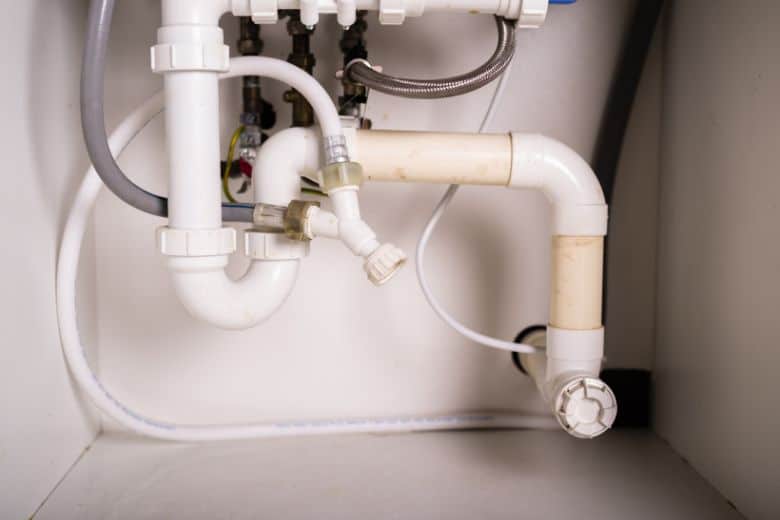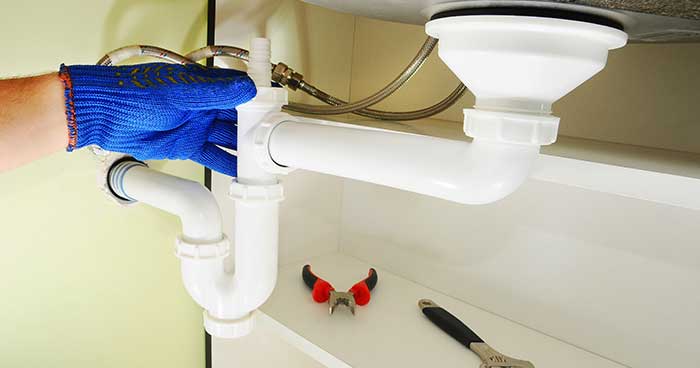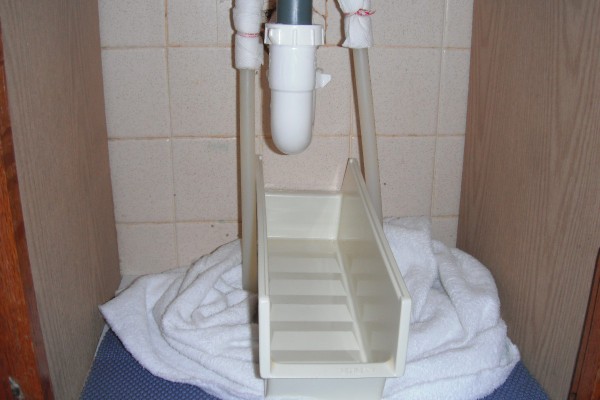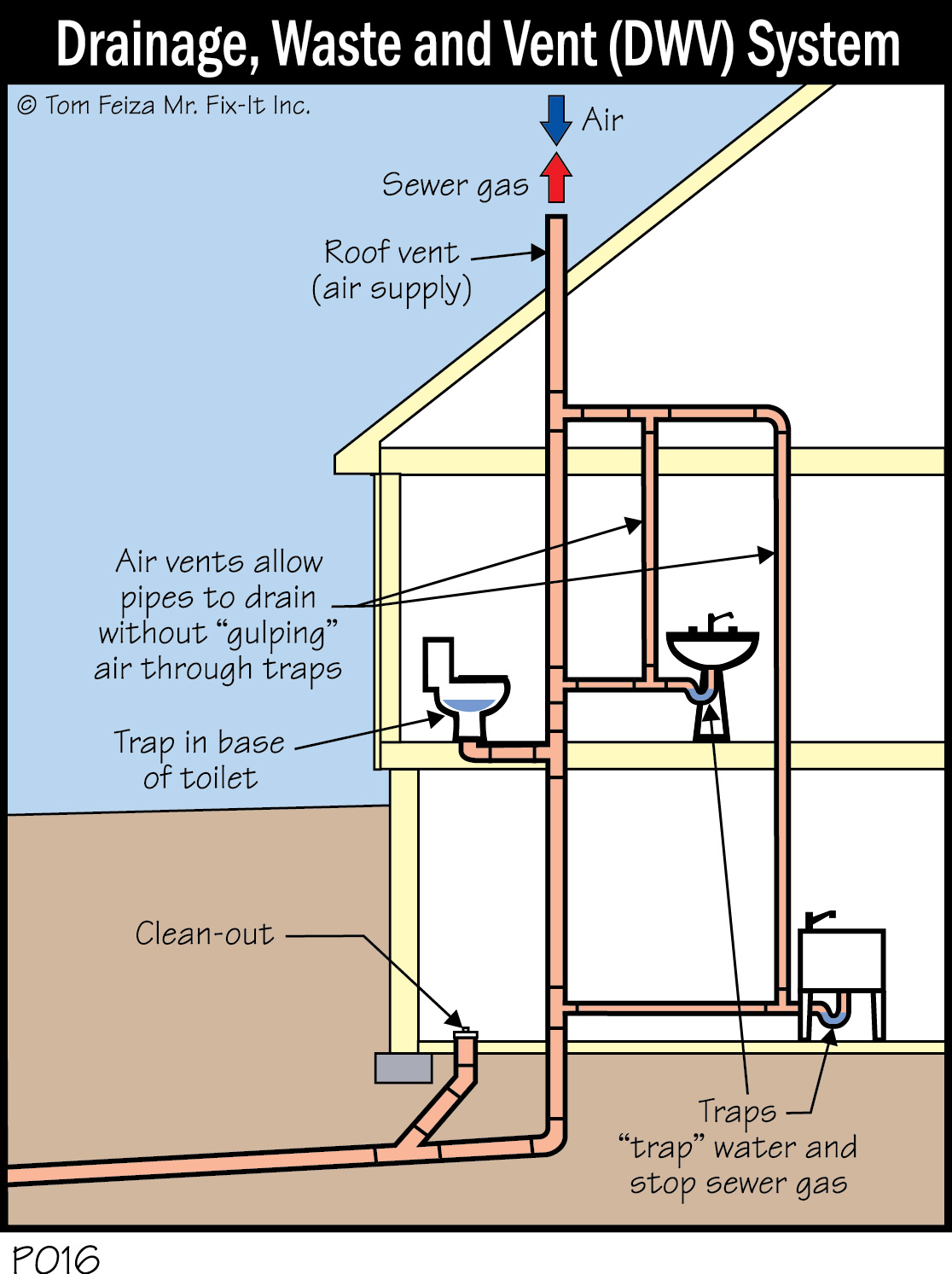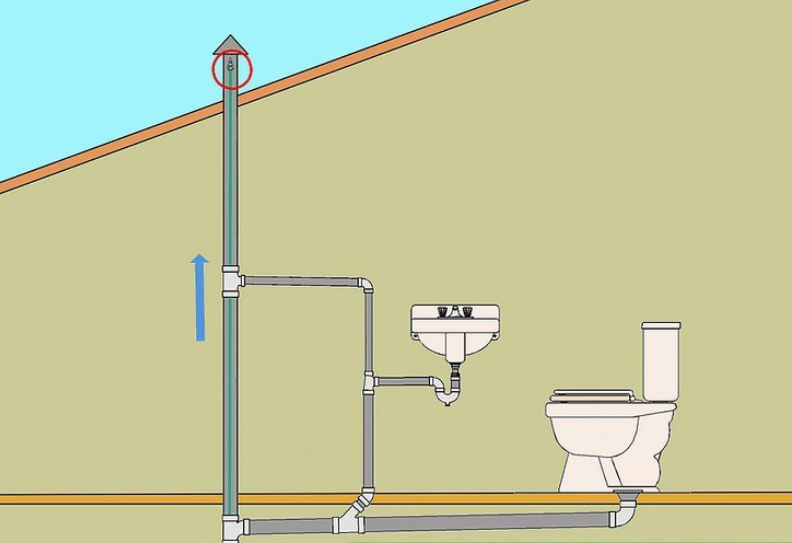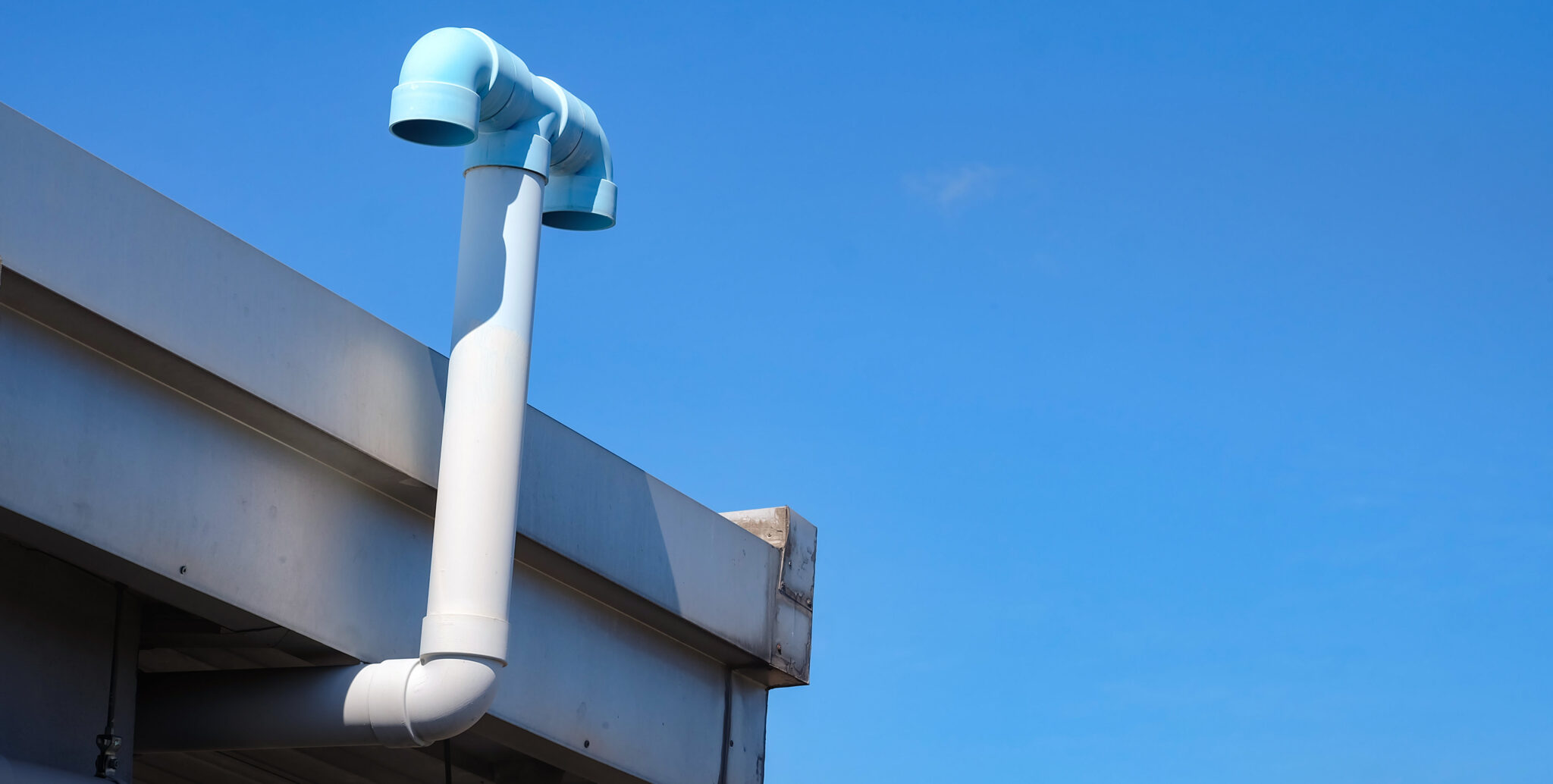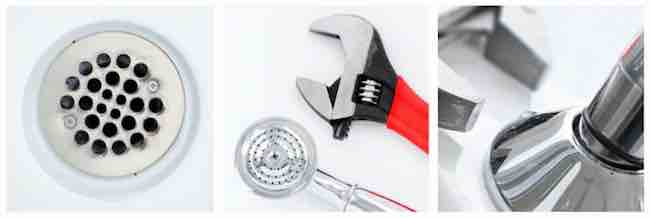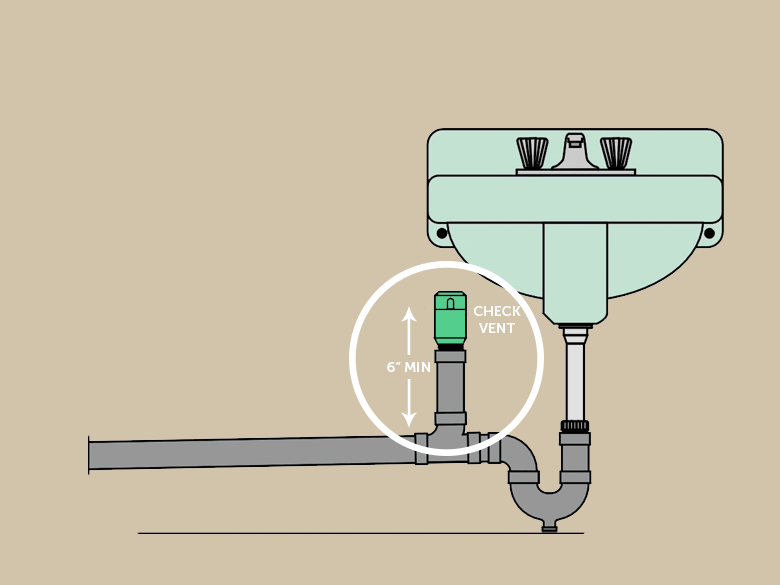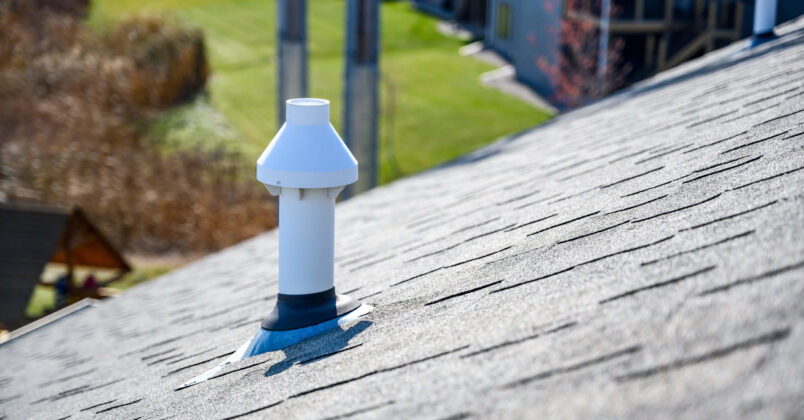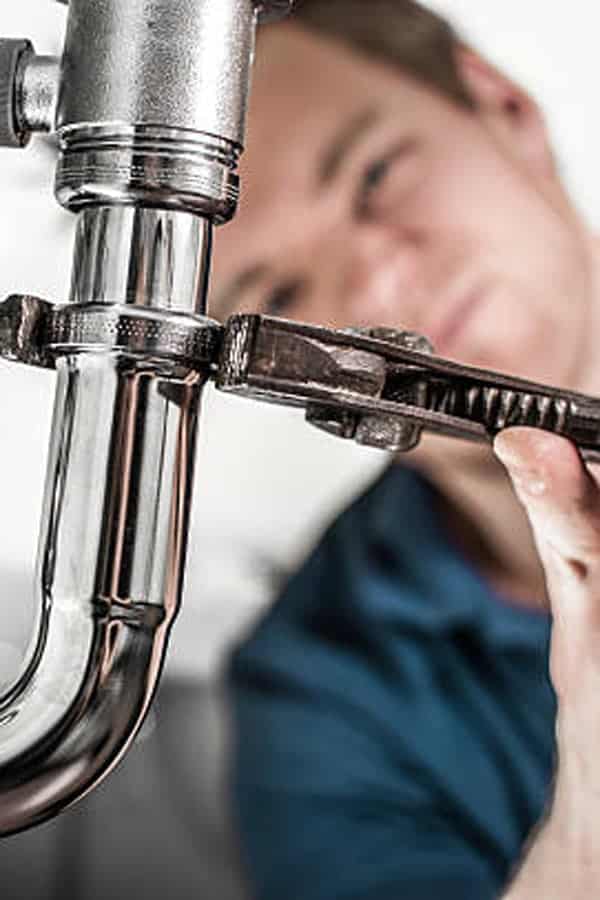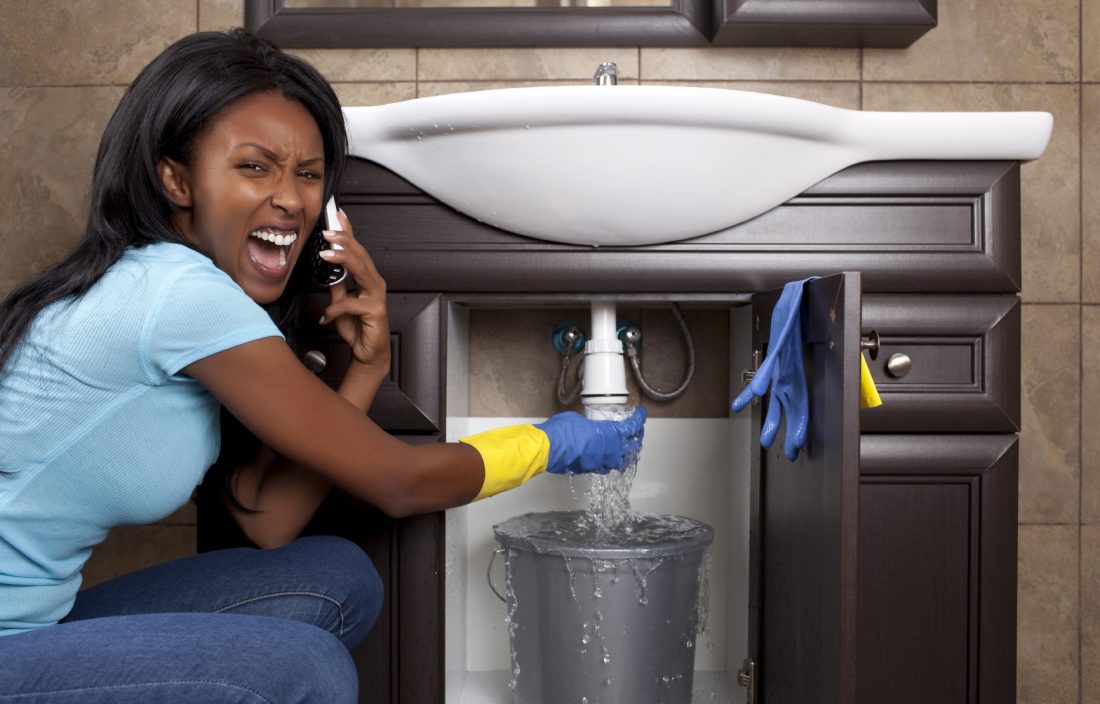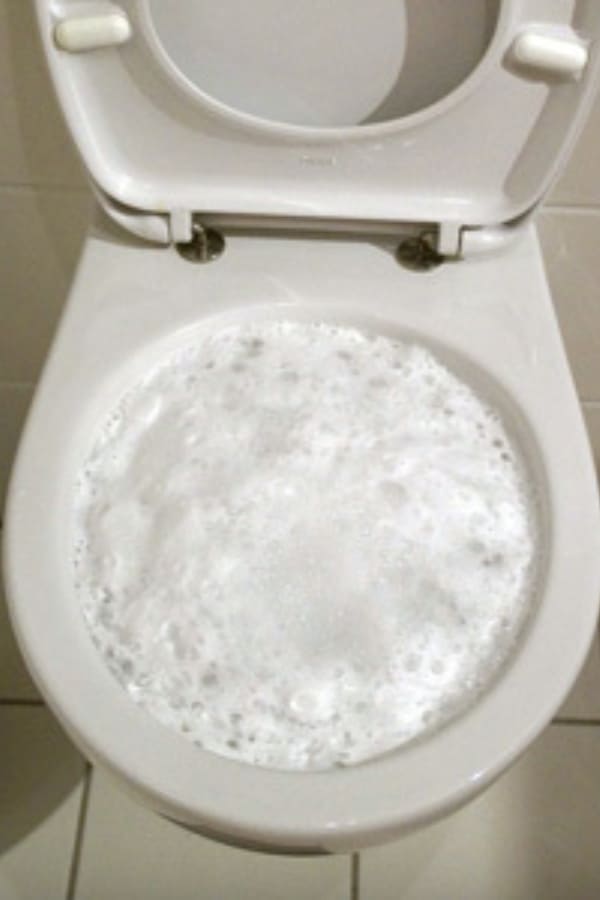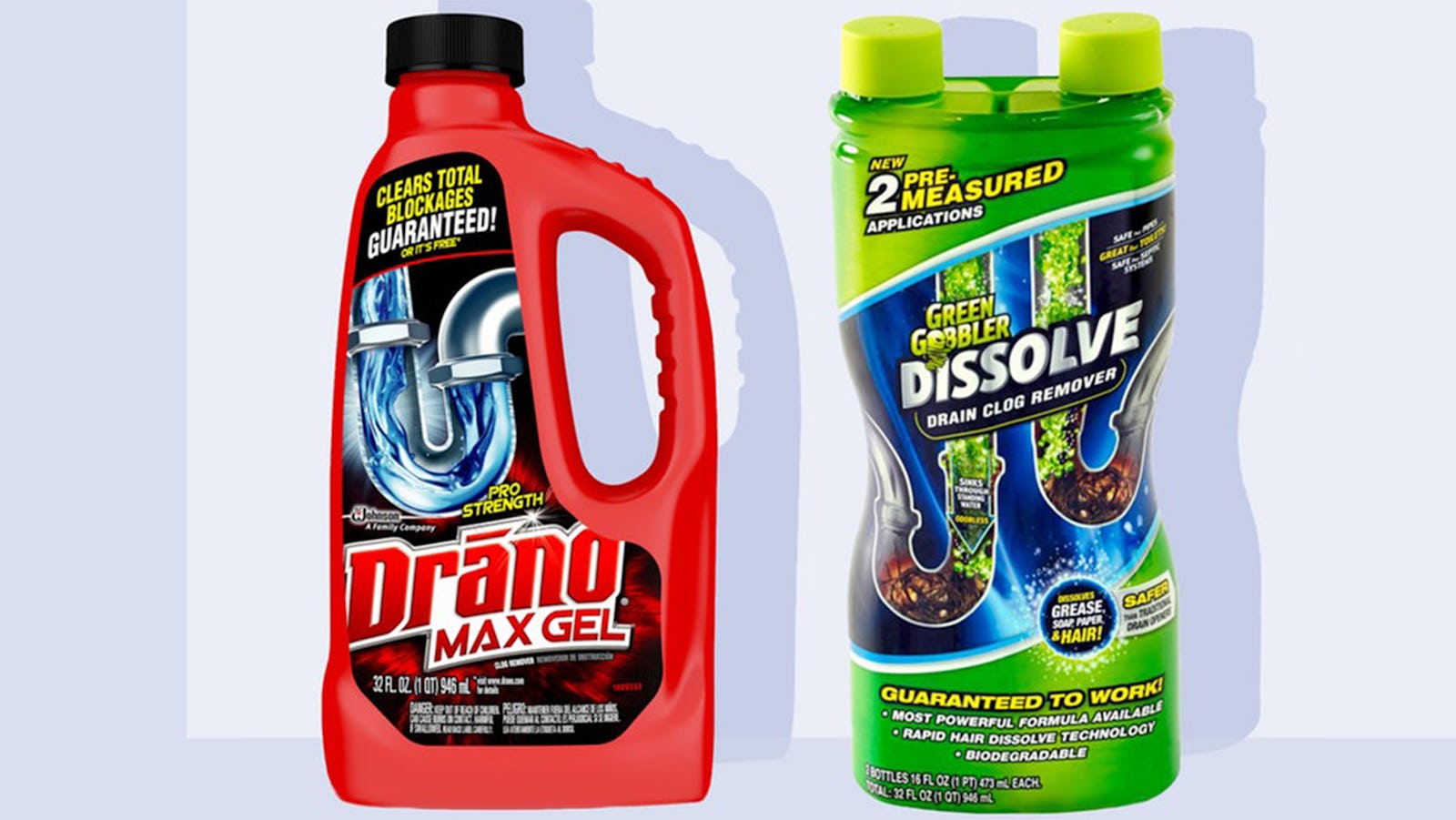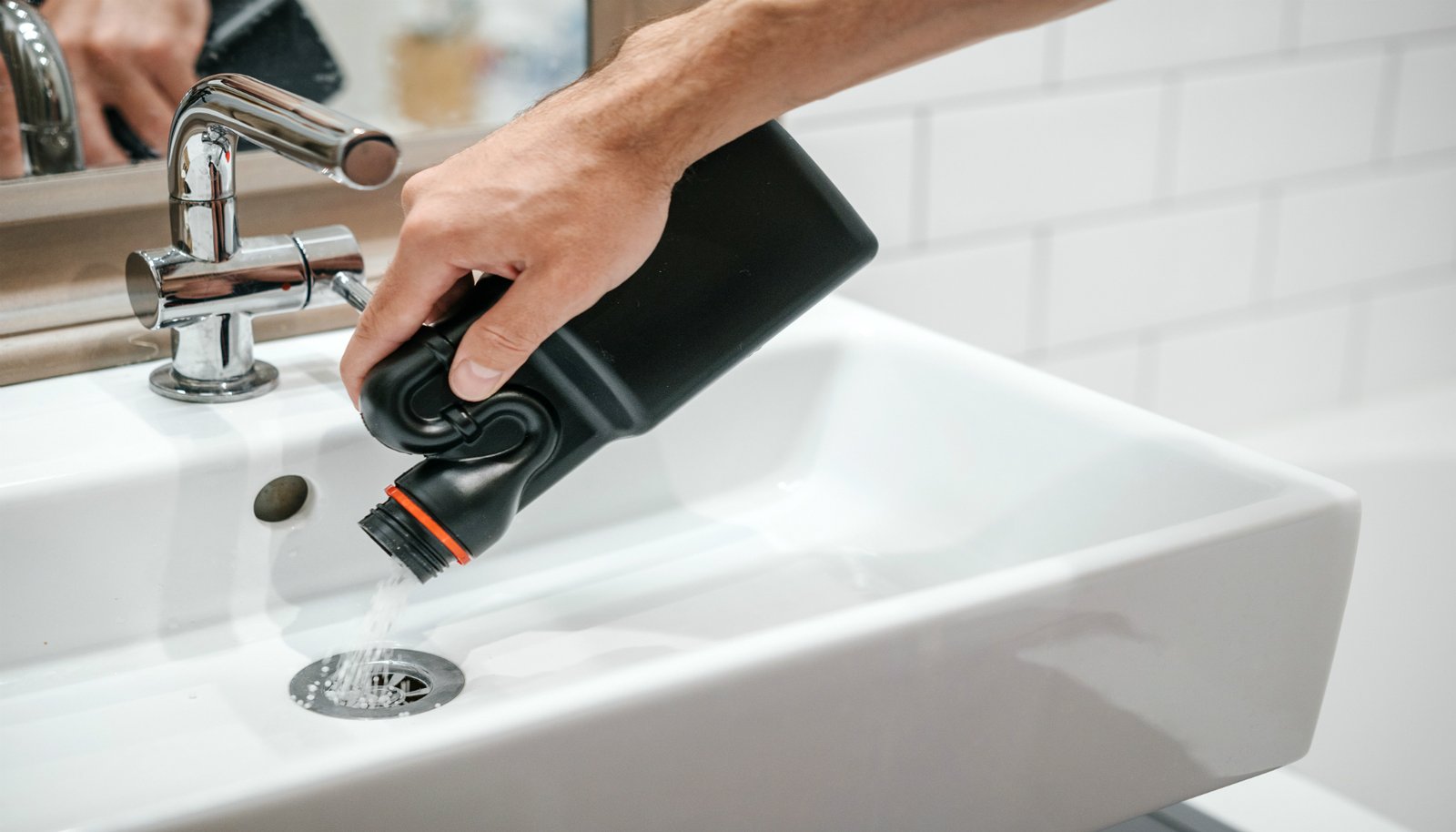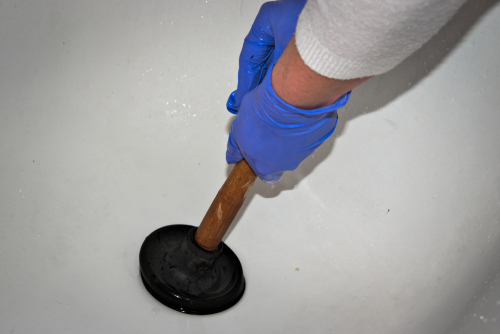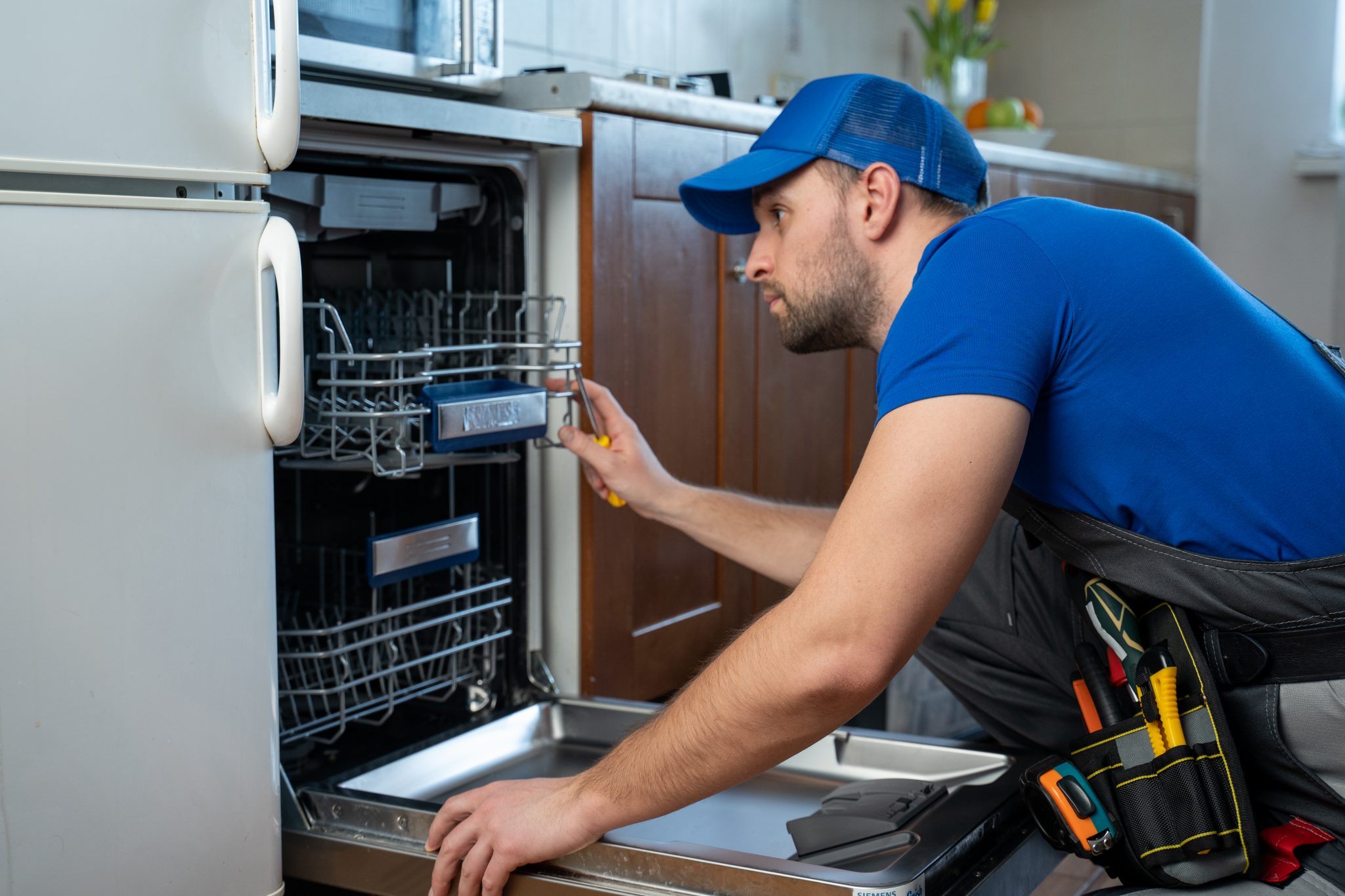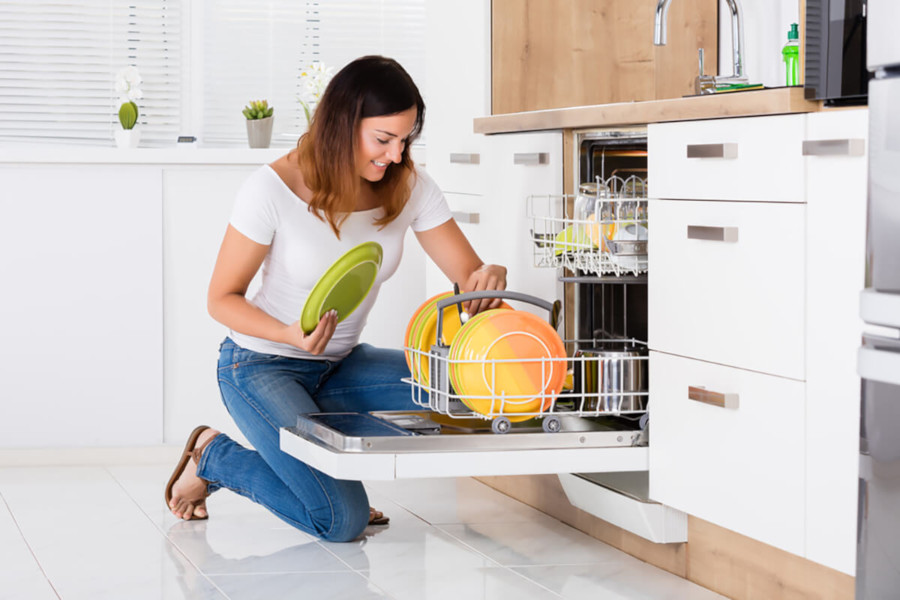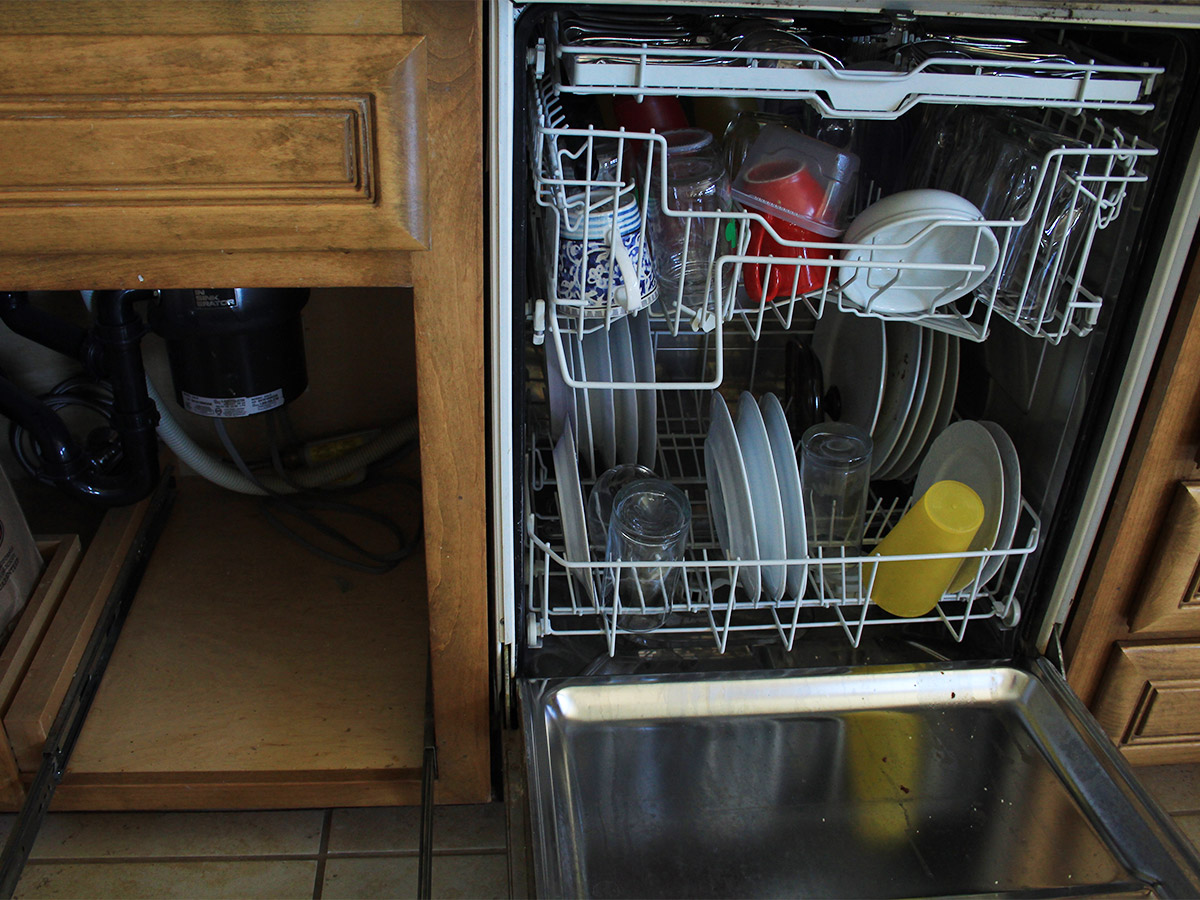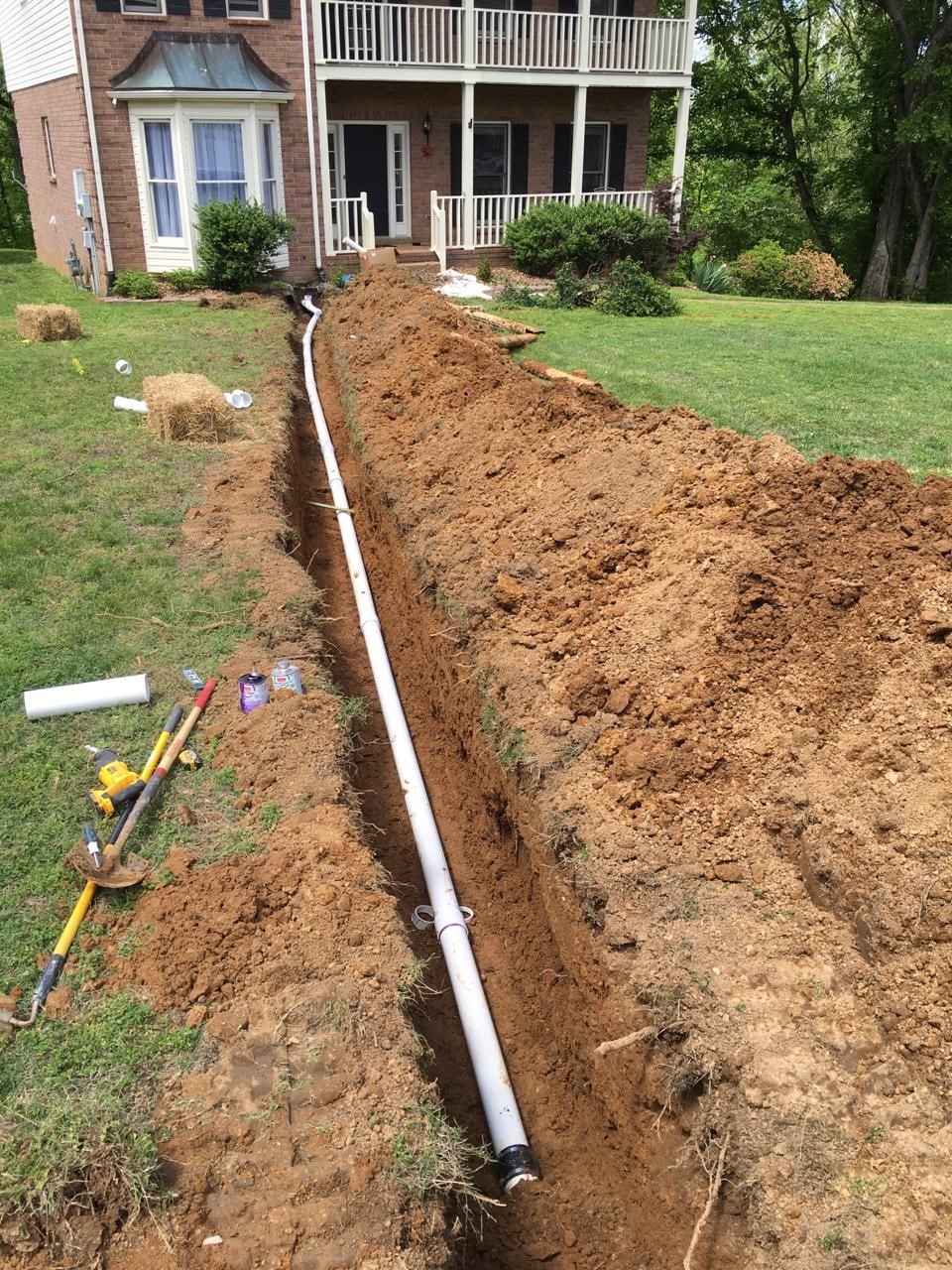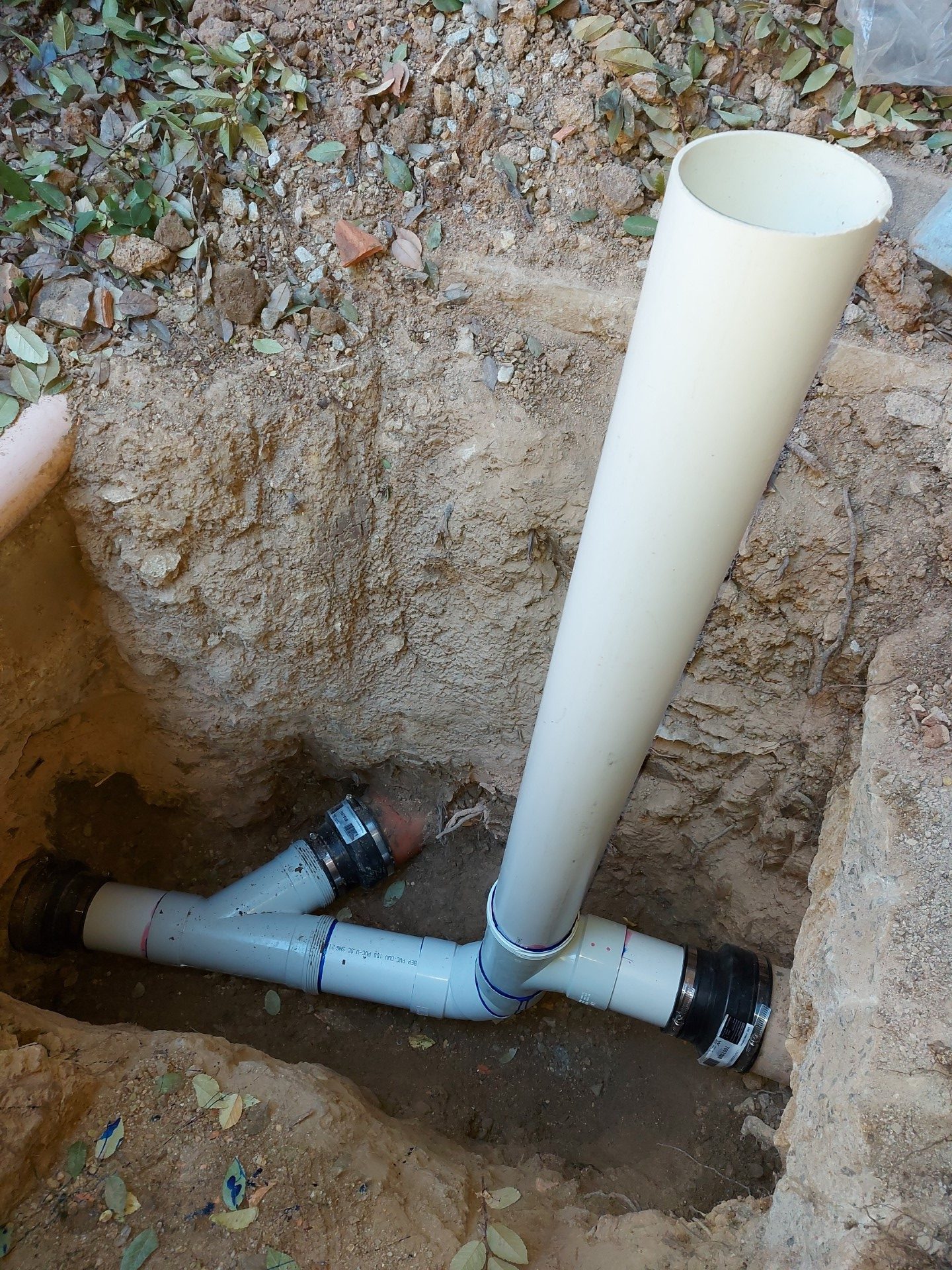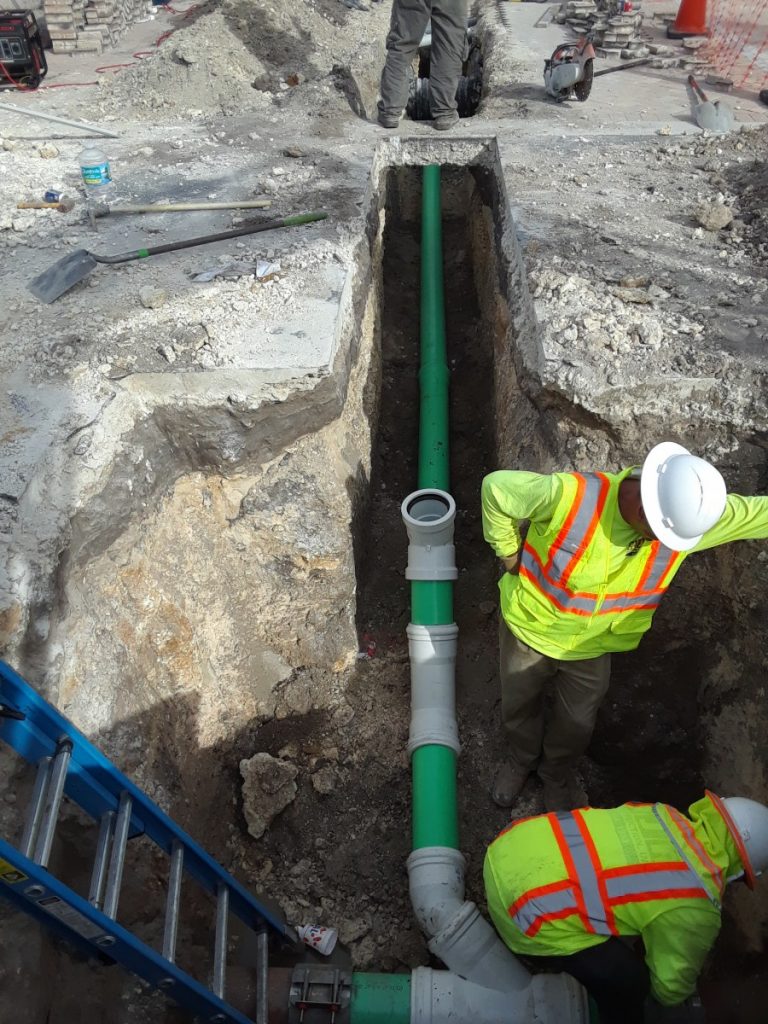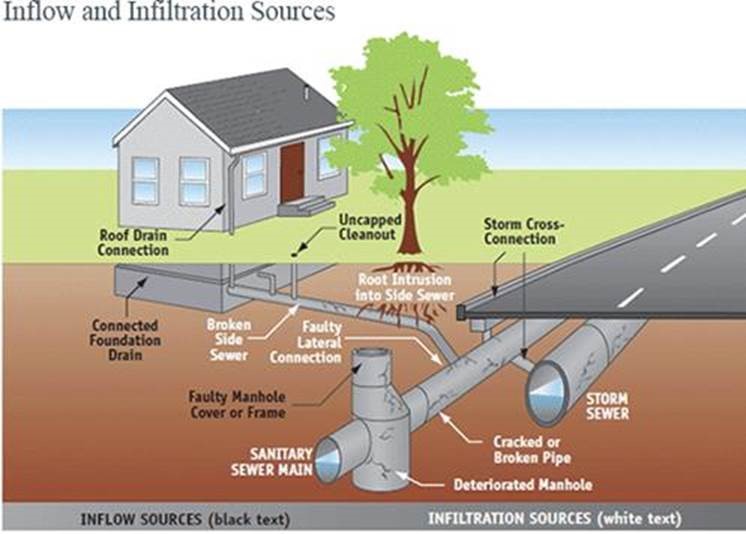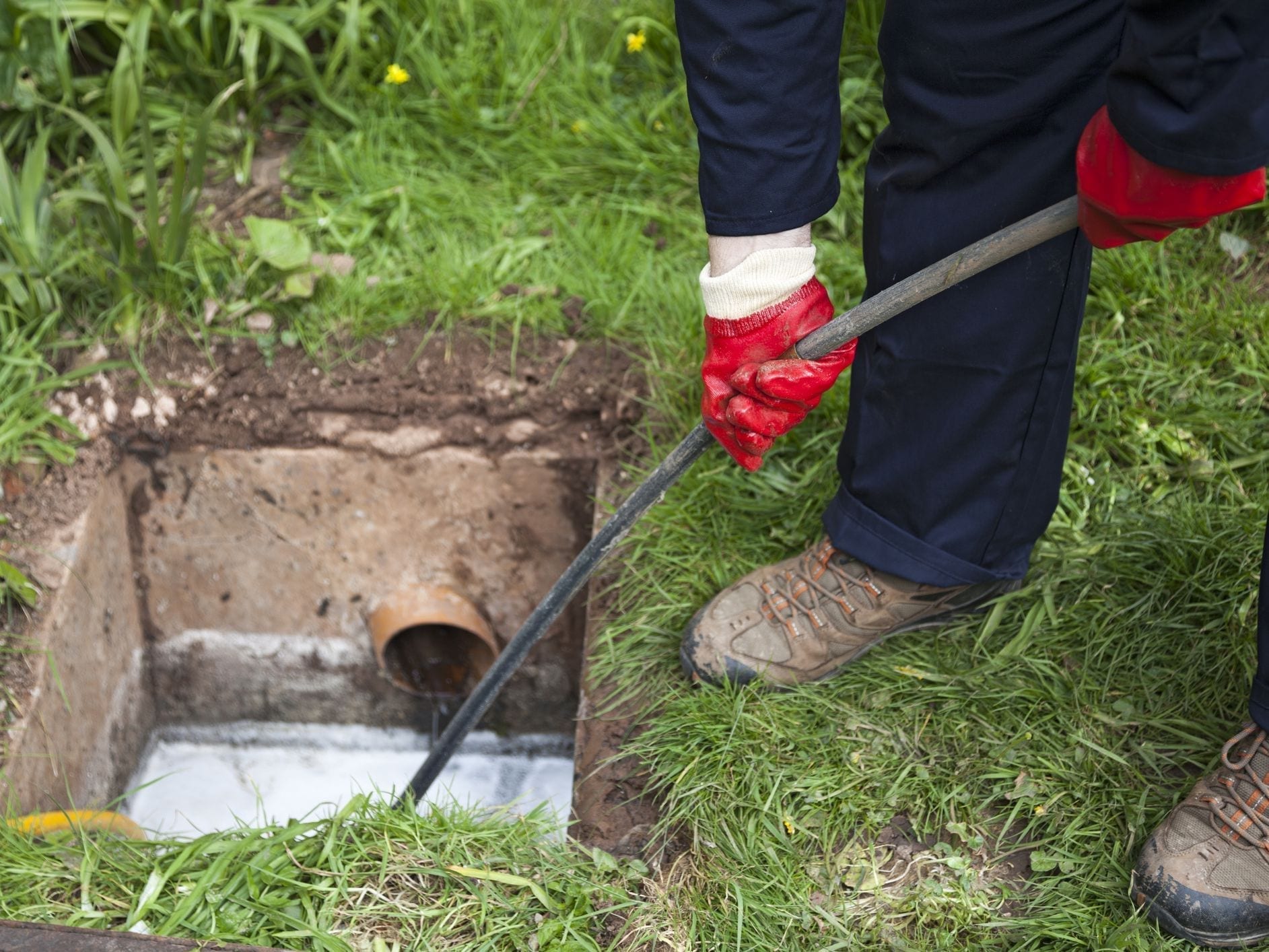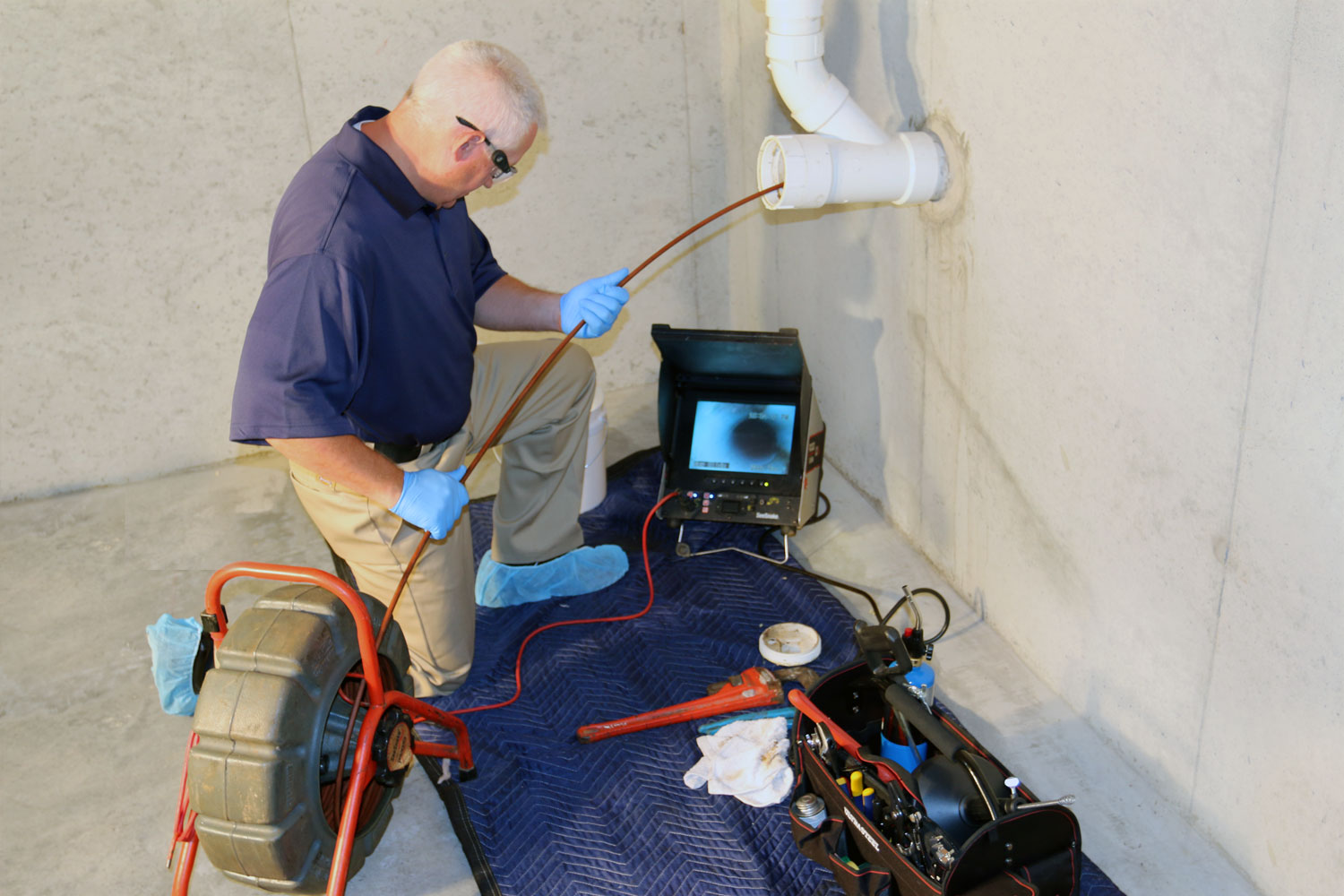If you notice water backing up in your kitchen sink, the first thing you should do is try to unclog the drain. This is usually the most common cause of a backed-up sink. Start by removing any visible debris, such as food scraps or hair, from the opening of the drain. You can also try using a plunger to push any clogs through the pipes. If this doesn't work, move on to the next step.Unclog the Drain
If your kitchen sink has a garbage disposal, it could be the culprit behind the backed-up water. Make sure the disposal is turned off and then use a flashlight to check for any visible clogs or obstructions. You can use tongs or pliers to remove any debris that may be causing the problem. Once you have cleared the disposal, run hot water down the drain to see if it is draining properly.Check the Garbage Disposal
If the above steps don't work, try plunging the sink. This is a simple and effective method for unclogging drains. Fill the sink with enough water to cover the plunger, and then place the plunger over the drain. Make sure there is a good seal around the plunger and then push and pull vigorously to create suction. This should help to dislodge any clogs and get the water flowing again.Plunge the Sink
If the plunger doesn't work, you can also try using a drain snake. This tool is designed to go deep into the pipes and remove any obstructions. To use a drain snake, insert it into the drain and turn the handle to maneuver it through the pipes. Once you feel resistance, you have likely reached the clog. Continue turning the handle to break up the clog and then pull the snake back out of the drain.Use a Drain Snake
If none of the above methods work, the problem may be with the P-trap. This is the curved pipe under your sink that is designed to catch debris and prevent it from going further into the plumbing system. To clean the P-trap, place a bucket or large bowl under the pipe to catch any water, then use a wrench to loosen the connections and remove the trap. Clean out any debris and then reattach the P-trap.Clean the P-Trap
Another possible cause of water backing up in your kitchen sink could be a clogged vent pipe. This pipe allows air to enter the plumbing system and helps to keep the water flowing smoothly. If the vent pipe is clogged, it can disrupt the flow of water and cause it to back up into your sink. You can use a drain snake or a high-pressure water jet to clear any clogs in the vent pipe.Check the Vent Pipe
If you have tried all of the above methods and the water is still backing up in your kitchen sink, it may be time to call a plumber. They have the tools and expertise to properly diagnose and fix any underlying issues with your plumbing system. It's always better to call a professional rather than attempting to fix a complicated plumbing problem yourself.Call a Plumber
If you are dealing with a stubborn clog, you can also try using a chemical drain cleaner. These products are designed to dissolve and break up clogs in your pipes. However, they can also be harmful to your pipes and the environment, so use them sparingly and follow the instructions carefully. You may also want to consider using a natural drain cleaner, such as a mixture of baking soda and vinegar, which can be gentler on your plumbing system.Use a Chemical Drain Cleaner
If your kitchen sink is connected to a dishwasher, it could also be the cause of the water backing up. Check the dishwasher's drain hose and make sure it is not clogged or kinked. If it is, you can try to clean it out or replace it with a new one. It's also a good idea to run a cycle through your dishwasher to see if that helps to clear the clog.Check the Dishwasher
In some cases, the problem with water backing up in your kitchen sink may not be isolated to just your household plumbing. It could be a sign of a larger issue with the sewer line. If you notice other drains in your home are also backing up, or if you hear gurgling noises coming from your toilet, it's a good idea to have a professional plumber inspect your sewer line for any blockages or damage. In conclusion, water backing up in your kitchen sink is a common and frustrating problem, but it can usually be resolved with a few simple steps. Start by unclogging the drain and checking the garbage disposal, and if those methods don't work, move on to more advanced techniques or call a plumber for assistance. With a little patience and persistence, you can get your kitchen sink draining properly again in no time.Inspect the Sewer Line
Preventing Clogs in Your Kitchen Sink
How to Keep Your Kitchen Sink Free of Backups and Clogs
 If you've noticed
water backing up
in your kitchen sink, you're not alone. This is a common problem that many homeowners face, and it can be quite frustrating. Not only does it slow down your daily tasks, but it can also lead to unpleasant odors and potential damage to your plumbing system. The good news is that there are steps you can take to prevent clogs and backups in your kitchen sink.
Proper disposal of food scraps
is key to keeping your kitchen sink and drain clear. Many people make the mistake of washing food scraps down the drain, thinking that the garbage disposal can handle it. However, even small bits of food can build up and cause clogs over time. Make sure to
scrape food scraps
into the trash before washing dishes or using the garbage disposal.
Regularly cleaning your drain and pipes
is another important step in preventing backups. Over time, debris and buildup can accumulate in your pipes, causing blockages. You can use a mixture of hot water, vinegar, and baking soda to flush out your pipes and keep them clear. Additionally, using a
mesh drain cover
can catch larger particles and prevent them from going down the drain.
Another potential cause of backups and clogs in your kitchen sink is
grease and oil buildup
. These substances can solidify and create blockages in your pipes. To prevent this, make sure to
dispose of grease and oil
in a separate container and throw it in the trash. You can also run hot water down the drain after cooking with these substances to help flush them out.
Finally,
regular maintenance and inspections
of your plumbing system can help catch any potential issues before they turn into bigger problems. A professional plumber can check for any blockages and make sure your pipes are in good working condition. They can also provide advice on proper maintenance and care for your kitchen sink and plumbing system.
In conclusion,
water backing up in your kitchen sink
is a common issue that can be prevented with proper care and maintenance. By following these tips, you can keep your kitchen sink free of clogs and backups, and ensure a smoothly running plumbing system in your home. Remember to properly dispose of food scraps, regularly clean your drain and pipes, and schedule regular maintenance checks with a professional plumber.
If you've noticed
water backing up
in your kitchen sink, you're not alone. This is a common problem that many homeowners face, and it can be quite frustrating. Not only does it slow down your daily tasks, but it can also lead to unpleasant odors and potential damage to your plumbing system. The good news is that there are steps you can take to prevent clogs and backups in your kitchen sink.
Proper disposal of food scraps
is key to keeping your kitchen sink and drain clear. Many people make the mistake of washing food scraps down the drain, thinking that the garbage disposal can handle it. However, even small bits of food can build up and cause clogs over time. Make sure to
scrape food scraps
into the trash before washing dishes or using the garbage disposal.
Regularly cleaning your drain and pipes
is another important step in preventing backups. Over time, debris and buildup can accumulate in your pipes, causing blockages. You can use a mixture of hot water, vinegar, and baking soda to flush out your pipes and keep them clear. Additionally, using a
mesh drain cover
can catch larger particles and prevent them from going down the drain.
Another potential cause of backups and clogs in your kitchen sink is
grease and oil buildup
. These substances can solidify and create blockages in your pipes. To prevent this, make sure to
dispose of grease and oil
in a separate container and throw it in the trash. You can also run hot water down the drain after cooking with these substances to help flush them out.
Finally,
regular maintenance and inspections
of your plumbing system can help catch any potential issues before they turn into bigger problems. A professional plumber can check for any blockages and make sure your pipes are in good working condition. They can also provide advice on proper maintenance and care for your kitchen sink and plumbing system.
In conclusion,
water backing up in your kitchen sink
is a common issue that can be prevented with proper care and maintenance. By following these tips, you can keep your kitchen sink free of clogs and backups, and ensure a smoothly running plumbing system in your home. Remember to properly dispose of food scraps, regularly clean your drain and pipes, and schedule regular maintenance checks with a professional plumber.



:max_bytes(150000):strip_icc()/freshen-and-unclog-drain-with-baking-soda-1900466-22-bbf940b70afa4d5abef0c54da23b1d3f.jpg)
:max_bytes(150000):strip_icc()/freshen-and-unclog-drain-with-baking-soda-1900466-18-1a5b5da01939471ca8f8823865bd1ce8.jpg)
:max_bytes(150000):strip_icc()/freshen-and-unclog-drain-with-baking-soda-1900466-17-20179d73b7a2455797ebc6a5f5bf7479.jpg)
